- Home
- Parnell Hall
Puzzled to Death Page 15
Puzzled to Death Read online
Page 15
Chief Harper nodded. “Works for me.”
“In which case Becky Baldwin’s never seen the pad, she just has Joey Vale’s recollection of it.”
“That’s right.”
“Crossed and double-crossed. No wonder she’s so hot to hire me. She figures you’ll bring me the clue. And I’ll report it back to her. Maybe even give her a copy.” Cora cocked her head. “Would I have had a copy to give?”
“Keep that one. Work on it in your spare time. See if you can come up with anything slightly more useful than what you just did.”
“Don’t be rude. Is it my fault your clue is an inexplicit jumble that implicates both Judy’s husband and her lover?” Cora folded the doodle, stuck it in her purse. “So if Becky hasn’t seen this and she knows you have it, why doesn’t she just demand it?”
Chief Harper shrugged. “I’m sure she would have, if I hadn’t dropped the charges against Joey. I think she sees the doodle as a bargaining chip. She knows I’m withholding it from the media. By not demanding I produce it, she’s letting me know she’ll cooperate as long as I lay off Joey Vale.”
Cora rubbed her head. “Double-think. Don’t you people ever play straight?”
“Don’t blame me,” Chief Harper said. “Joey Vale was in the middle of telling me his story when Becky Baldwin swooped down and made him clam up. He was cleared and released, and she still wouldn’t let him talk. So I’m in no particular rush to show her all my evidence.”
“No argument here. Just interested in your point of view.”
“Okay, so tell me this,” Chief Harper said. “Why does Judy Vale write a crossword-puzzle clue? Granted, it’s not a crossword puzzle, it’s a doodle, but why does she doodle in intersecting words? Why does her doodling take the form of a crossword puzzle? Riddle me that.”
“Two reasons,” Cora replied promptly.
Chief Harper groaned. “I should have known. I guess I’m lucky there aren’t three.”
“One, Judy Vale doodled on the phone while talking to her lover. Or talking to her girlfriend and thinking about her lover.”
“And she doodled a crossword because …”
“Because of the tournament. It’s the talk of the town. Has been for weeks. Everyone’s been talking about it. Even people who aren’t involved.” Cora frowned. “She wasn’t one of those picketing nuts, was she?”
“No, she wasn’t. What’s your other theory?”
Cora grimaced. “Well, you might not like it. But the clue strikes me as way too straightforward. In my humble opinion, it was planted.”
“Planted?”
“Yeah. By the killer. To throw suspicion on someone else.”
“Wait a minute,” Chief Harper protested. “You’re now suggesting the killer strangles Judy, then sits down at her kitchen table with her notepad and scribbles a cryptic message just to lead me off the track? In which case the killer isn’t Joey Vale or Judy Vale’s lover but someone entirely different, someone who decides that a crossword-puzzle message alluding to Joey Vale and Judy Vale’s lover, without actually implicating either one of them, is exactly what the police need to draw suspicion away from her real killer. And instead of leaving this message on the body, where it might do the killer some good, leaves it facedown on the kitchen table where there’s no guarantee the police will even connect it to the crime at all!” Chief Harper paused for breath. His face was very red. “Is that what you’re suggesting?”
Cora smiled. “Don’t pull your punches, Chief. If you don’t like my theory, just say so.”
JESSICA THORNHILL, AS A GRAPHIC PROCLAIMED PAUL Thornhill’s wife to be, rolled soulful eyes at the camera and said, “I feel connected to this woman, because she protected me. A man was harrassing me about winning the first event, and she made him stop. Which was only right, because why shouldn’t I have won the first event? My husband had nothing to do with that puzzle, so why should I be disqualified just because my husband happened to be on my team?”
“Why indeed?” Rick Reed soothed. “But with regard to the woman herself. Mrs. Felicity Roth. The woman who was violently slain. Just what exactly did she say to your husband?”
“I don’t know. I was playing the picture game. You know, identifying the drawings on the wall. Paul wasn’t helping me because of that awful man. And then I go back to our table, and there he is. Complaining again. And Paul’s not even playing. And that’s when the woman pulled him away.”
“Very interesting,” Rick Reed said, nodding sagely. One got the impression he had Jessica Thornhill on camera because she was pretty but couldn’t care less what she had to say. “Mr. Thornhill. What was Mrs. Roth talking to you about?”
“She was confirming the fact that I was a local celebrity.” Paul Thornhill made a self-deprecating gesture of false modesty. “I was afraid she was going to ask for an autograph.”
“And did she mention the murder of Judy Vale?”
Paul Thornhill frowned. “I believe she said she was a neighbor. I got the impression she was trying to make herself seem important, but I really wasn’t paying much attention.”
“And why was that?”
“Frankly, I was watching my wife. I had noticed some resentment toward her during the first game.” Paul Thornhill grinned and ducked his head boyishly. “And I like watching my wife.”
As if on cue, the Thornhills beamed at each other, while still managing to keep their handsome faces turned to the camera.
“That’s enough to make you puke,” Cora Felton commented, waving her fork at the TV.
“I hope you’re not referring to my pork medallions,” Sherry said as she poured the wine. Sherry had whipped up a dinner of pork, egg noodles, and spinach. As usual, Sherry and Cora were eating in the living room in front of the TV.
“Dinner’s great. Particularly since we didn’t get lunch. But I’ve really had enough of glamour-puss Thornhill.” Cora took a bite of pork and sipped her wine. “Even so … Oh, look, there’s Iris.” Cora pointed at the TV. “And what’s-his-face.”
On the screen, Iris Cooper stood next to Harvey Beerbaum on the marble steps of the Bakerhaven town hall. “These homicides are of course a genuine tragedy,” Iris said with convincing sincerity, “and would be at any time. It’s just doubly unfortunate that they should happen now, when the town is deeply involved in doing good work. I am referring, of course, to the Bakerhaven Crossword-Puzzle Tournament, which has raised over ten thousand dollars for charity. We just want to assure the public that in spite of these tragedies, the tournament will go on.”
“That’s right,” Harvey Beerbaum piped up. “The last puzzle will be given out at ten o’clock tomorrow morning, to be followed immediately by the final play-off between the top three finishers.”
“Among the top three finishers,” Sherry corrected automatically. As the TV went to commercial, she picked up the zapper, clicked it on mute. “What were you going to say?”
“I don’t know. Was I going to say something?”
“About Paul Thornhill. Something about his interview.”
Cora speared some noodles. “Oh, yes. He says Mrs. Roth bragged about being Judy’s neighbor. Trying to make herself seem important.”
“So? I’m sure that’s what she did.”
“Me too. Only thing is, when Chief Harper asked him about it this morning, Thornhill didn’t remember that.”
“Are you sure?”
“Positive. He said she didn’t mention the murder and he seemed surprised to learn she lived across the street from the Vales.”
“That’s not what he just said.”
“Exactly.” Cora said it smugly. Or as smugly as you can say something with your mouth full of noodles.
“How do you account for it?”
“Well,” Cora said, “either he was fibbing to cover up the fact he killed her, or he was lying because he didn’t want to be involved, or he was dissembling to avoid adverse publicity, or he just plain didn’t remember.”
“That’s helpfu
l,” Sherry said.
“Actually, it helps to state the problem,” Cora said serenely. “These noodles are delicious. What’s your secret?”
“Boiling water. It’s a dish even you could make, Cora.”
“Well, let’s not be hasty. Just the thought of cooking gives me hives.” Cora took another bite and gestured with her fork to the doodle, which was lying precariously close to her wineglass. “So, you give any thought to the puzzle?”
“Such as it is,” Sherry said. She retrieved the paper, spread it out on the coffee table.
“I’m assuming Judy Vale doodled this. It’s a woman’s doodle. Anyway, it concerns two people, her husband and her lover. Primarily her lover. Do you see why?”
“Sherry. I’ve had it up to here with puzzles.”
“Sorry. The first word doodled was lover. It’s in the middle of the pad, and it goes across. The way a person would normally write. Everything else grows from that. And the other words are all in pairs. For instance, lights out is a series. But it can’t be the next series, because out intersects with jealous. So the next word would have to be jealous.”
Cora, peering over Sherry’s shoulder, said, “Why not Joey?”
“Because Joey doesn’t connect with lover, it’s parallel to it. It connects with the j in jealous. So jealous comes next. Jealous and then Joey. Jealous is written first, but the two words actually come together, making the phrase jealous Joey or Joey jealous.
“So what’s next? Well, now you can do lights out. No problem. She doodles those next. Which fits just fine. Except, unluckily, she’s got or left over from writing Joey over lover. So she scribbles an else onto Joey, creating the phrase or else. Which fits very nicely. Joey jealous. Lights out or else. Or even Lights out or else Joey jealous. But lover, that’s who the note’s about.”
“I wish I could think like you,” Cora said. “That’s the sort of thing I need to do to get Harvey Beerbaum off my case. Explain a crossword puzzle. Convince him I have a nodding acquaintance with one.”
“I’m afraid a simple analysis like that wouldn’t impress him much.”
“Maybe not,” Cora said. “But it sure wouldn’t hurt. Okay, never mind how the damn thing was doodled, what does it mean? All this stuff about Joey being jealous unless the lights are out.”
“Or else.”
“Huh?”
“It’s not unless, it’s or else.”
“Whatever. What does it mean? Is it a message to her lover?”
“Not at all. It’s what she scribbled while talking on the phone. She wasn’t leaving a message, she was doodling her subconscious thoughts.” Sherry sawed a piece of pork. “And that’s what Aaron thinks too.”
“You told Aaron?”
Sherry put up her hand. “Off the record, in strictest confidence. Not for publication.”
“Chief Harper will kill me.”
“Relax. He’d never write it. Anyway, Aaron agrees it’s not a message, just a doodle.”
“And the lover in the doodle?”
“The lover in the doodle is in serious trouble, what with Joey Vale cleared.”
“I mean who is he?”
Sherry shrugged. “Mrs. Roth talked to three men: Paul Thornhill, Marty Haskel, Billy Pickens. Paul Thornhill’s the type, but he wasn’t in town. Marty Haskel was, but he’s not the type. Billy Pickens qualifies on both counts.”
“It wouldn’t take a genius to figure that one out.”
“So why does Harper need your help?”
“Maybe he figures the doodle’s too straightforward, there must be something more to it.”
“Yeah, well … Wasn’t it Freud who said sometimes a cigar is just a cigar?”
“I think it was Bill Clinton.”
“You’re terrible.”
The phone rang. Cora scooped up her plate and glass, headed for the kitchen. “I got it,” she said. She plunked the dishes down on the counter, picked up the phone.
Sherry, following with her plate, saw her aunt stiffen.
“Hello, Harvey,” Cora said.
“Hello, indeed!” Harvey Beerbaum had on his most peeved voice. “You ran out on me today. Left me to carry on alone.”
“It was a murder, Harvey,” Cora said defensively. “Chief Harper needed me.”
This was only partly true. Chief Harper had actually brought Cora back during lunch, but she had feigned police work and skipped out on the afternoon session.
“That may well be,” Harvey said. “But we’re supposed to be a team. So far, I’ve done almost everything. It’s embarrassing. I feel like I’m showing off. I’d like to give you a chance to show off too.”
A cold chill ran down Cora’s spine. “What do you mean?” she asked. She reached up and hit speakerphone so Sherry could hear.
Harvey Beerbaum’s voice filled the kitchen. “Tomorrow. During the finals. While the three finalists are solving the puzzle onstage, you’re going to do the commentary.”
“The what?”
Harvey practically purred. “Just a little idea of mine. They do it at the national tournament, so there’s no reason we can’t do it here. The finalists wear headphones that play loud classical music. So they can’t hear what you’re saying. And you take the microphone and do a play-by-play commentary on how they’re doing with their puzzles. Point out where they’re making errors. Suggest lines of strategy they might take.”
Cora could barely speak. “It’s your idea, Harvey,” she managed to croak. “I think you should do it.”
“Not at all. It’s your turn to shine. I want you to have a chance to show people what you can do.” It seemed to Cora that Harvey’s voice took on just a slight edge. “You can’t hide your expertise forever.”
The line clicked dead.
Cora hung up the phone with nerveless fingers. “Sherry. What the hell do I do?”
“I don’t know.”
“I can’t do the commentary.”
“That’s for sure.”
“How do I get out of it?”
“You could murder Harvey Beerbaum.”
“Thank you for the gallows humor.” Cora shrugged. “I suppose I could get drunk.”
“Aunt Cora …”
“If I were drunk, no one could expect me to comment coherently on crossword puzzles.”
“No. But videotape of you failing to do so would undoubtedly run on every nightly news show. It might even go national.”
Cora muttered something any news show, local or national, would have to edit.
The doorbell rang. Sherry and Cora looked at each other.
“If that’s Harvey Beerbaum I’m not here,” Cora said decisively.
“Don’t be silly. He just hung up.”
“He could have been on a cell phone. If it’s him, I’m gone.”
“Aunt Cora.”
“Phooey. You get the door. I’ll be in here ready to bolt. And pick up that puzzle before you let anyone in.”
Sherry detoured into the living room, folded up the doodle, and stuck it in her purse. Then she opened the front door to find a handsome curly-haired young man who looked familiar but whom she could not immediately place. “Yes?” she asked.
“Cora Felton. I’ve gotta see her. Is she here?”
Sherry frowned. “I’m afraid my aunt went out. And who are you?”
“Billy Pickens.”
Cora popped out of the kitchen. “Mr. Pickens!”
Billy Pickens looked at her. “I thought you went out.”
“I came back in. What are you doing here?”
“Miss Felton. I gotta talk to you. I’m going nuts.”
This prospect made Cora’s eyes light up. “What’s the problem?”
“I’m married. I got a wife and two sweet girls.”
“Then why were you running around with Judy Vale?”
“Miss Felton—”
“That’s your problem, isn’t it? That you were having a fling with Judy. At least, I hope that’s your problem. Not that you killed
someone.”
“Of course I didn’t kill anyone!”
“So what’s the story?”
“I took the girls to the movies this afternoon. Two o’clock movie, like I said. I get home with the girls and guess who’s waiting for me? A TV crew. Right in front of my house. Filming me as I get out of my car. Me and my sweet girls. So I said, ‘No comment,’ herded the girls into the house.”
“What did you tell your wife?”
Billy Pickens looked at Sherry.
“That’s my niece, Sherry Carter. Indispensable. Assists me with everything. Now, let’s all three of us go into the kitchen, sit down, and work this out.”
Cora herded Billy Pickens into the kitchen, plunked him at the table. “Can I get you a drink?”
“I could use a beer.”
“Then you’re out of luck. I got vodka, gin, and scotch.”
“My wife will think something’s wrong if I drink anything but beer.”
“If your wife doesn’t think something’s wrong, she’s a pretty dim bulb.” Cora threw some ice cubes in a glass, poured a jolt of scotch, handed it to Billy. “Okay, you were telling me how you explained the TV crews to your wife.”
“I said they wanted to ask about the old lady talking to me at Fun Night.”
“And why’d you tell your wife you wouldn’t talk to them?”
“I didn’t want to talk in front of the girls.”
“She buy that?”
Billy Pickens prickled. “Hey, I don’t like your attitude.”
“I’m sorry. Was I abrupt? Did your wife place any credence in this particular prevarication?”
Billy Pickens glared at her a moment, maybe translating her question, then seemed fascinated with stirring the ice in his drink with his finger. “My wife was suspicious, to say the least.”
“She didn’t suggest you go back out and see the TV people alone?”
“It came up. But by then they’d gone away by themselves.”
“How come?”
Billy frowned, looked at her. “You watch the news?”
“Yeah.”
“Was I on it?”
“No.”

 Clicker Training
Clicker Training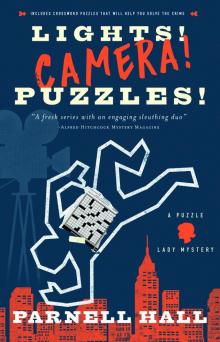 Lights! Camera! Puzzles!
Lights! Camera! Puzzles!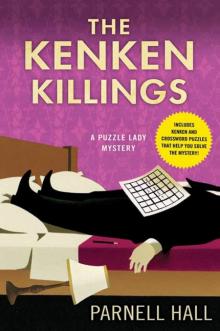 The KenKen Killings
The KenKen Killings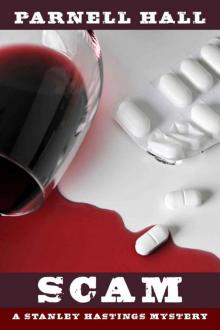 12-Scam
12-Scam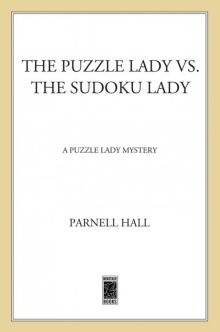 The Puzzle Lady vs. the Sudoku Lady
The Puzzle Lady vs. the Sudoku Lady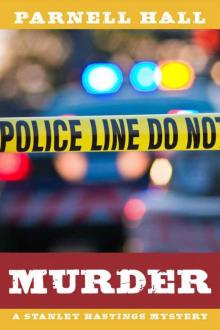 2 Murder
2 Murder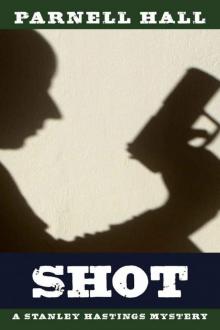 7 Shot
7 Shot You Have the Right to Remain Puzzled
You Have the Right to Remain Puzzled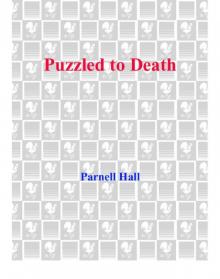 Puzzled to Death
Puzzled to Death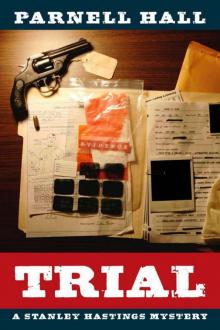 11-Trial
11-Trial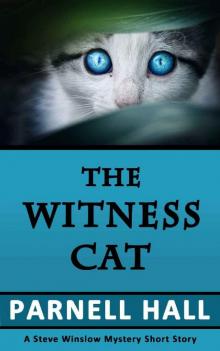 The Witness Cat (Steve Winslow Mystery)
The Witness Cat (Steve Winslow Mystery)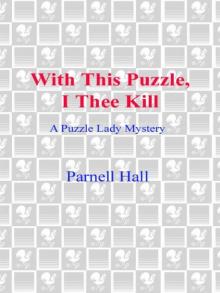 With This Puzzle, I Thee Kill
With This Puzzle, I Thee Kill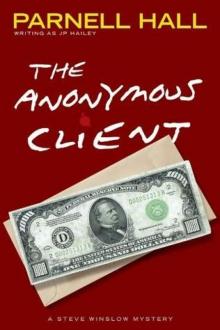 The Anonymous Client sw-2
The Anonymous Client sw-2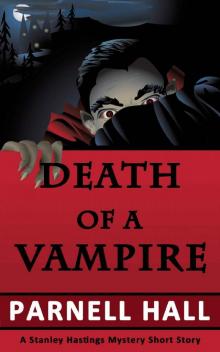 Death of a Vampire (Stanley Hastings Mystery, A Short Story)
Death of a Vampire (Stanley Hastings Mystery, A Short Story)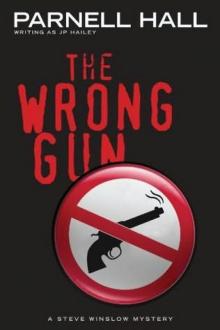 The Wrong Gun sw-5
The Wrong Gun sw-5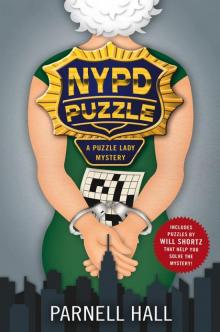 NYPD Puzzle
NYPD Puzzle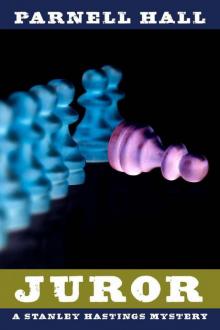 6 Juror
6 Juror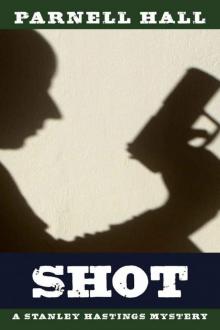 07-Shot
07-Shot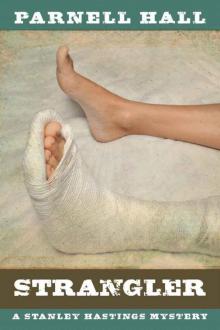 04-Strangler
04-Strangler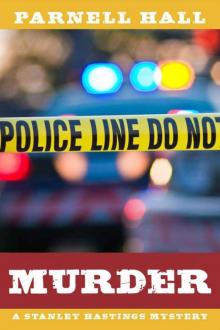 02-Murder
02-Murder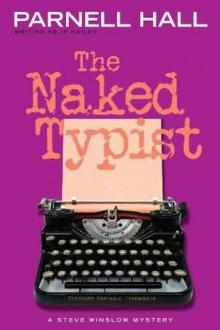 SW04 - The Naked Typist
SW04 - The Naked Typist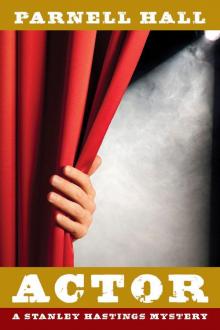 Actor
Actor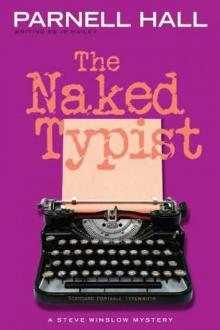 The Naked Typist sw-4
The Naked Typist sw-4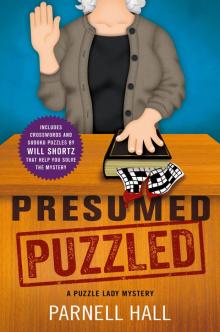 Presumed Puzzled
Presumed Puzzled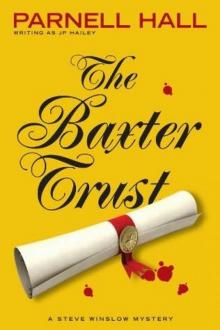 SW01 - The Baxter Trust
SW01 - The Baxter Trust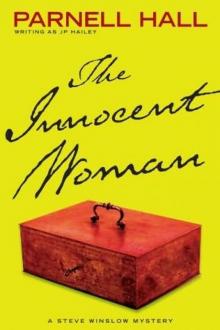 SW06 - The Innocent Woman
SW06 - The Innocent Woman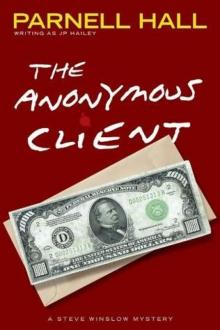 SW02 - The Anonymous Client
SW02 - The Anonymous Client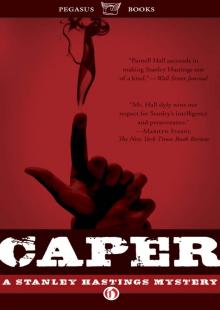 Caper
Caper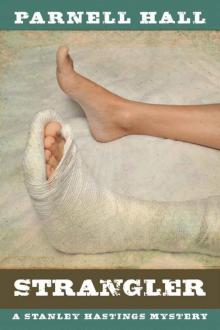 4 Strangler
4 Strangler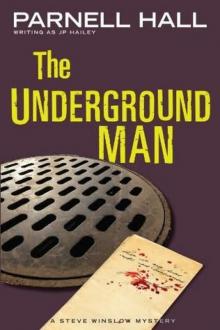 The Underground Man sw-3
The Underground Man sw-3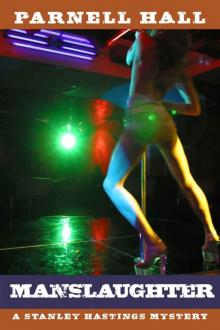 Manslaughter (Stanley Hastings Mystery, #15)
Manslaughter (Stanley Hastings Mystery, #15)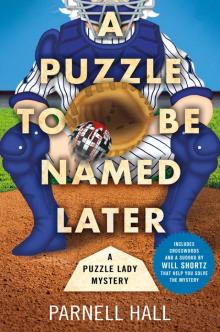 A Puzzle to Be Named Later--A Puzzle Lady Mystery
A Puzzle to Be Named Later--A Puzzle Lady Mystery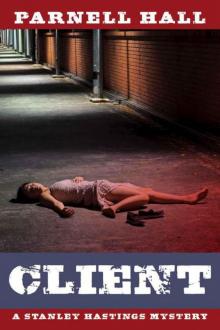 05-Client
05-Client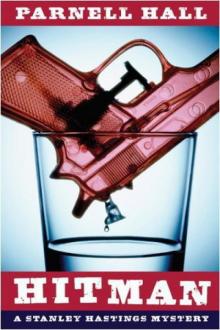 16 Hitman
16 Hitman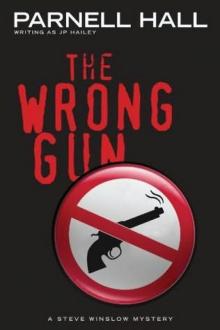 SW05 - The Wrong Gun
SW05 - The Wrong Gun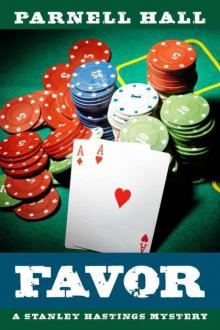 3 Favor
3 Favor Last Puzzle & Testament
Last Puzzle & Testament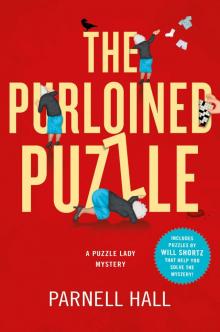 The Purloined Puzzle
The Purloined Puzzle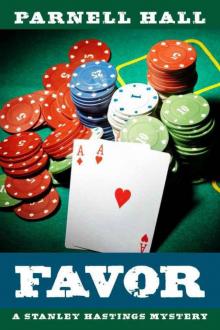 03-Favor
03-Favor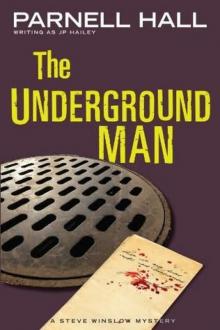 SW03 -The Underground Man
SW03 -The Underground Man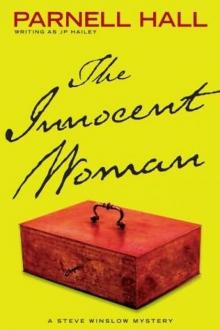 The Innocent Woman sw-6
The Innocent Woman sw-6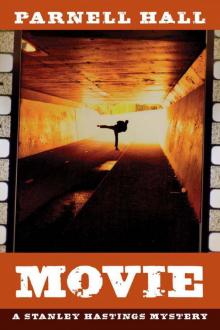 10 Movie
10 Movie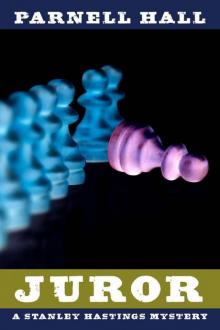 06-Juror
06-Juror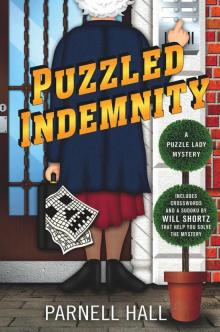 Puzzled Indemnity
Puzzled Indemnity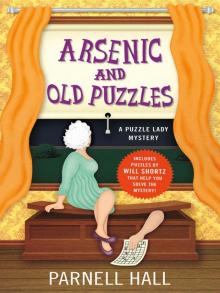 Arsenic and Old Puzzles
Arsenic and Old Puzzles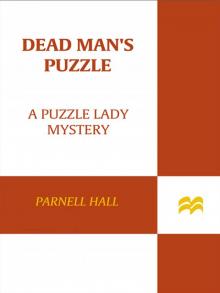 Dead Man's Puzzle
Dead Man's Puzzle Safari
Safari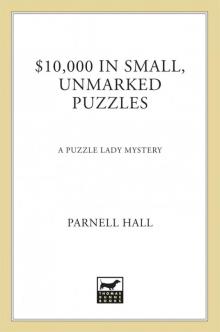 $10,000 in Small, Unmarked Puzzles
$10,000 in Small, Unmarked Puzzles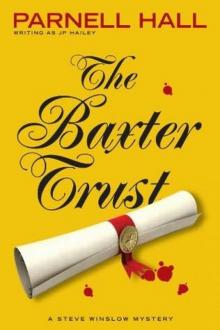 The Baxter Trust sw-1
The Baxter Trust sw-1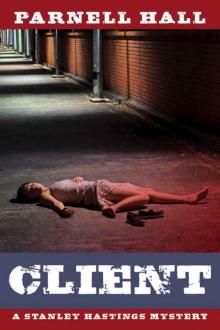 5 Client
5 Client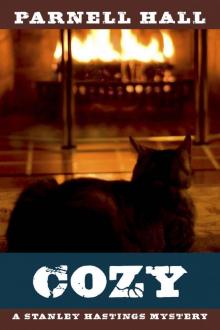 Cozy (Stanley Hastings Mystery, #14)
Cozy (Stanley Hastings Mystery, #14)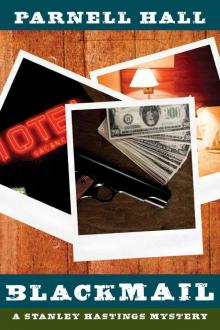 Blackmail
Blackmail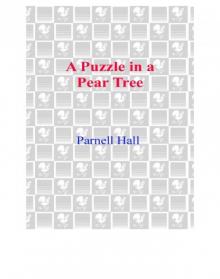 A Puzzle in a Pear Tree
A Puzzle in a Pear Tree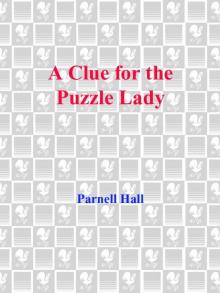 A Clue for the Puzzle Lady
A Clue for the Puzzle Lady Clicker Training (Stanley Hastings Mystery, A Short Story)
Clicker Training (Stanley Hastings Mystery, A Short Story)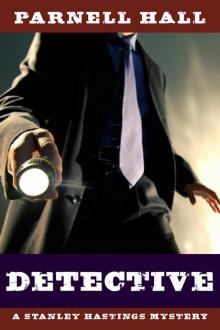 Detective (Stanley Hastings Mystery Book 1)
Detective (Stanley Hastings Mystery Book 1)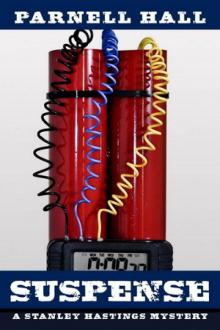 13 Suspense
13 Suspense